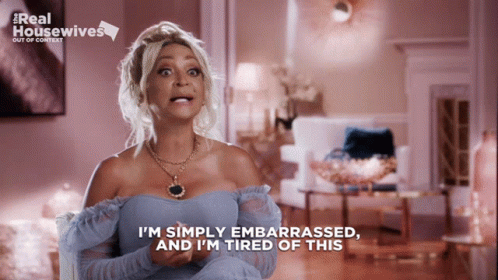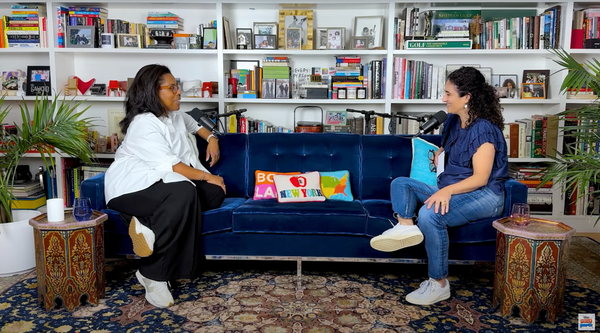In Pursuit of Happiness When You Have A Temperamental Uterus
It's hard work to be this chipper when depression is actively plotting against you.

Editor’s Note: I wrote this post when I was depressed. I’m presently not depressed anymore, but I still felt this disjointed mess was worth publishing.
Everyone thinks happiness just happens. But it doesn’t. It takes work, and being happy is work.
Or I should say, staying happy is work.
As most of you know, I’m in the process of writing a book about living with Bipolar Disorder, type II. I’m finishing up the proposal with an editor — since even editors need editors, and I kept writing myself into navel-gazing circles, never getting to the point. The book covers large swaths of my life — from childhood to career to friendships to my love life — detailing how being Bipolar intersects with it all. Presently my life is usually pleasant, but it wasn’t always that way. Life is a garden that constantly needs tending to stay beautiful and healthy, and my garden used to be overgrown, dry, half-dead, and choked out by weeds. People have this tendency to think good things just happen, but it’s something you work at, plan for, and build on. Happiness is intentional. Success is intentional. I want to be happy and successful so I do the things, all the things, that it takes to keep my life simple and easy to manage so I can focus my energy on making my dreams come true.
I worked very hard to get to my happiness. Dues were paid in abundance. My book editor asked me yesterday how many times I’d moved in my adult life. I started out counting the different cities I lived in until I realized that in some cities I lived in multiple places. In Midland, TX I moved twice. In Bakersfield, Calif. and Washington, D.C., I went through three different apartments. And I’ve now lived in three different places in NYC. On average, I move to a new city every 5-to-7 years but move to a new apartment every 2-to-3 years. I moved a lot when I was younger because I was convinced all the “bad juju” was in the apartment instead of in my own head, following me wherever I went. Now I move because I’m constantly in search of a better apartment. But pre-New York City, my life was chaos. I didn’t open mail and I barely took care of myself. I was lucky if I made $38k-to-$45k any given year, up until 2016 when I became editor-in-chief of The Root. So I’ve been “stable” for exactly seven years out of my 20+ year career.
I make it a point to not worry about anything I can’t control, but last week I was depressed despite my best efforts. My usual down payments and investments into my future happiness didn’t work because what happened to bring me down was unplanned and beyond my control.
The problem? I have fibroids. Numerous painful and inconvenient fibroids in my uterus.
Now why I have all these fibroids nobody knows. They only know that they’re common in women, especially Black women. They could be hereditary. They could be environmental. Who knows? There’s a lack of interest in studying and investigating why your uterus turns on you by our academic institutions and medical professionals even though women are more than half the U.S. population. Instead of making birth control more accessible and figuring out better, healthier, and safer ways for women to family plan, we just accept that being miserable one week or more out of every month until you hit menopause is just part of life.
I’m probably perimenopausal at this point as the clock is rapidly running out on my fertility. Up until about four days ago, I’d been on my menstrual cycle for the longest I’ve ever had it — two freaking months. My hormones were all over the place as I was on the brink of a meltdown. I can’t take hormone-based birth control because I had a blood clot almost three years ago and most BC pills increase your chances of clots. In lieu of a tangible solution, I’ve run out of tampons three times now despite buying the most super of super-sized tampons in boxes with 36 tampons. And it’s been a lot of work to not take out my frustration and misery on those closest to me. My doctor, who is probably tired of me emailing her, has thrown all the spaghetti at the wall to see if any of it stops my cycle. For seven weeks, nothing really worked, until we tried the combo of an IUD insertion and Medroxyprogesterone tablets.
Despite the spaghetti wall, I feel like I’m just slow-walking into a hysterectomy in a few years, but anything that can stave off surgery, I’m for trying.
My hope though is that this IUD will get me across the finish line of making these fibroids more manageable. Meaning, my mood should be back to 100 percent in another week or so. I honestly can’t wait, as I’ve worked so hard to have a good life and I want to go back to enjoying it. I want to return to being happy.
Happiness is having all your bills on autopay knowing there’s enough money in your accounts to cover them with some left over. Happiness is living in a place that is easy and pleasant and feels like home because you made it so. Happiness is taking it easy, especially after a day that was hard. Happiness is a few close friends and a good family, knowing you are all tight even if you don’t talk every day. Happiness is giving (and receiving) a warm hug. Happiness is the beach. Happiness is embracing the day knowing that it’s brand new and “no one has ever used it before,” as my mother used to say. Happiness is buying an amazing, but expensive mattress because you know how valuable good sleep is. And happiness is knowing you can afford it.
It’s also knowing you have your own back if no one else does. You have to plan and put down those investments into your own happiness every day if you ever expect to enjoy anything about this life. Every day might not be perfect, but in general, you’ll be better off with more good days than bad.
Except for when things happen beyond your control.



